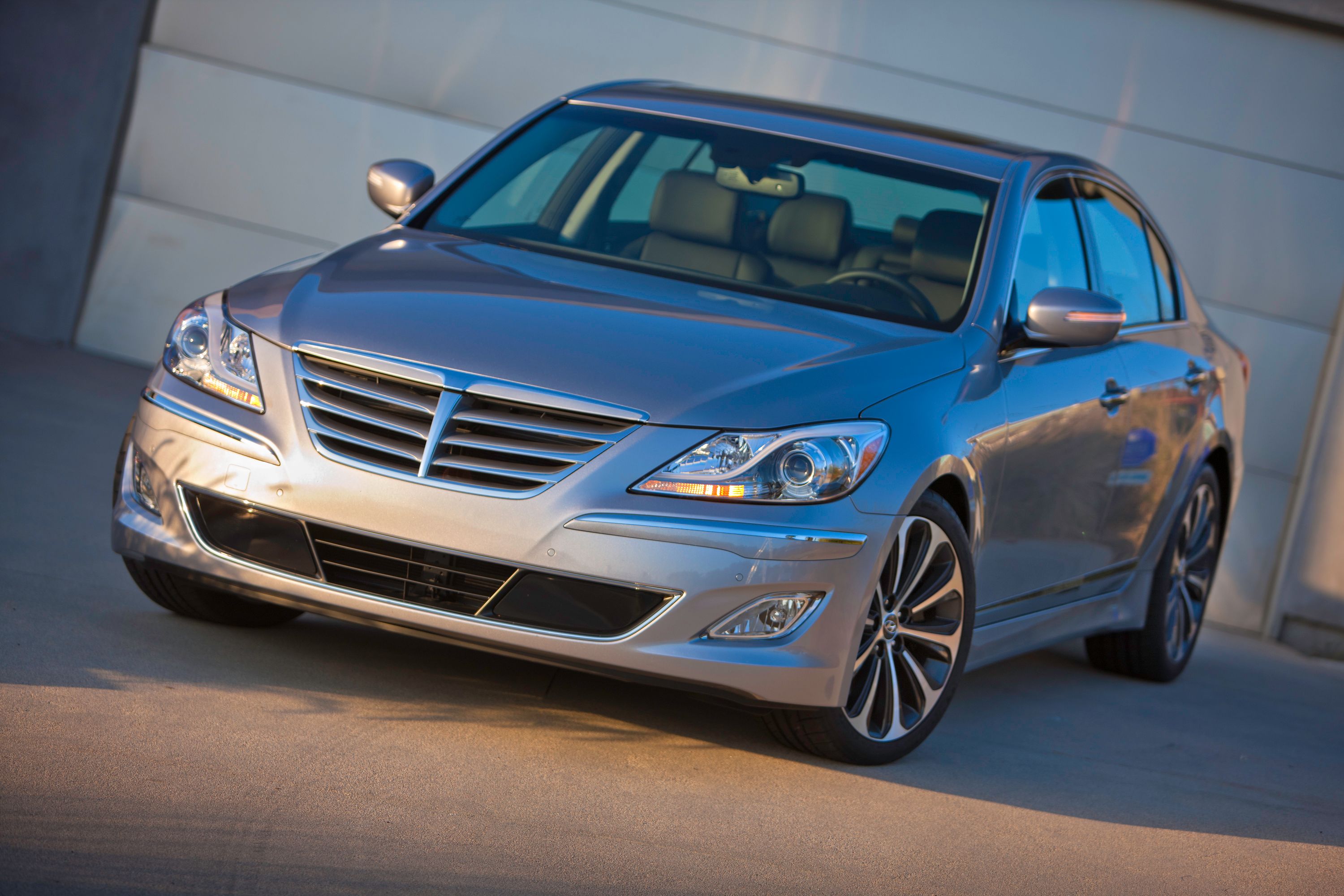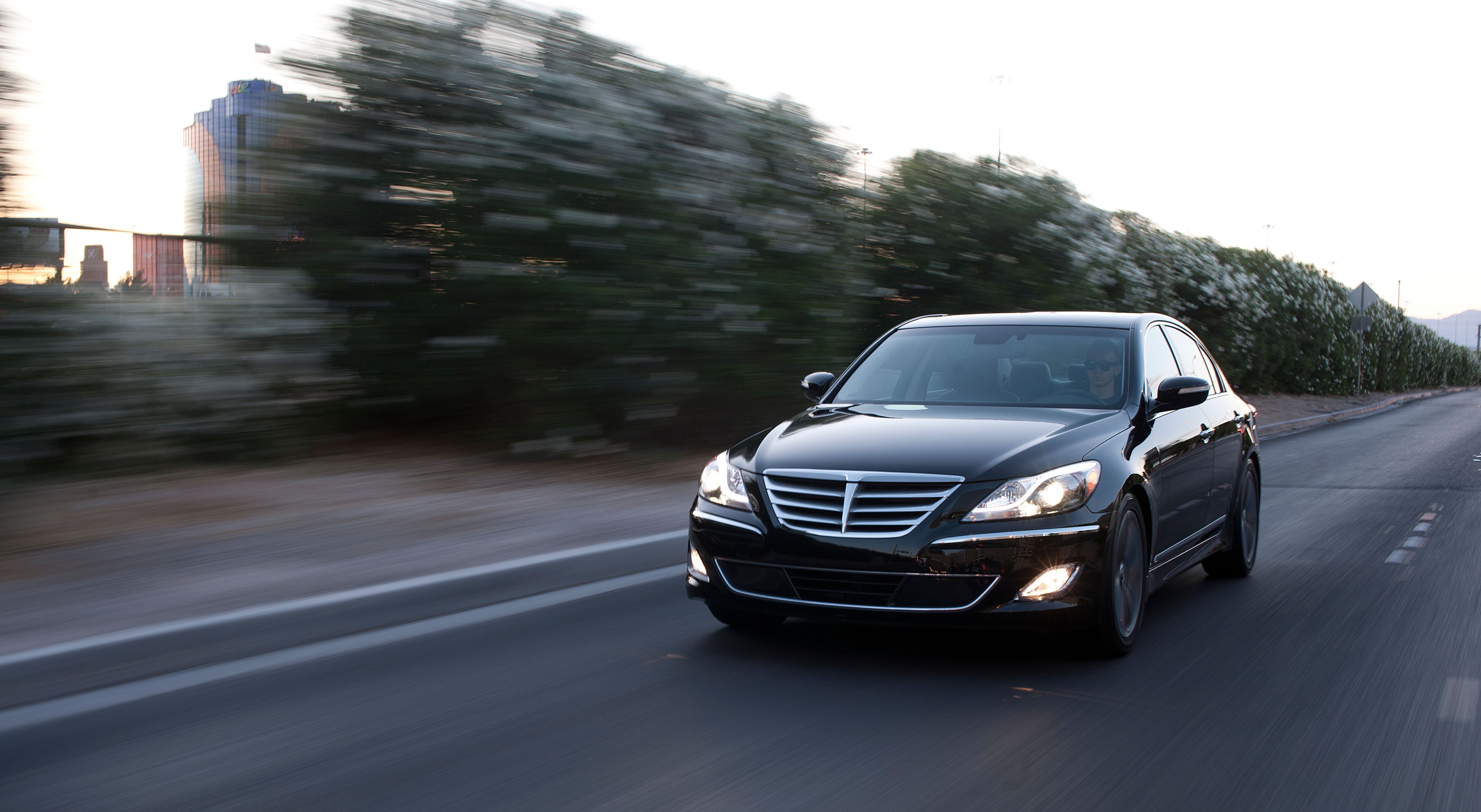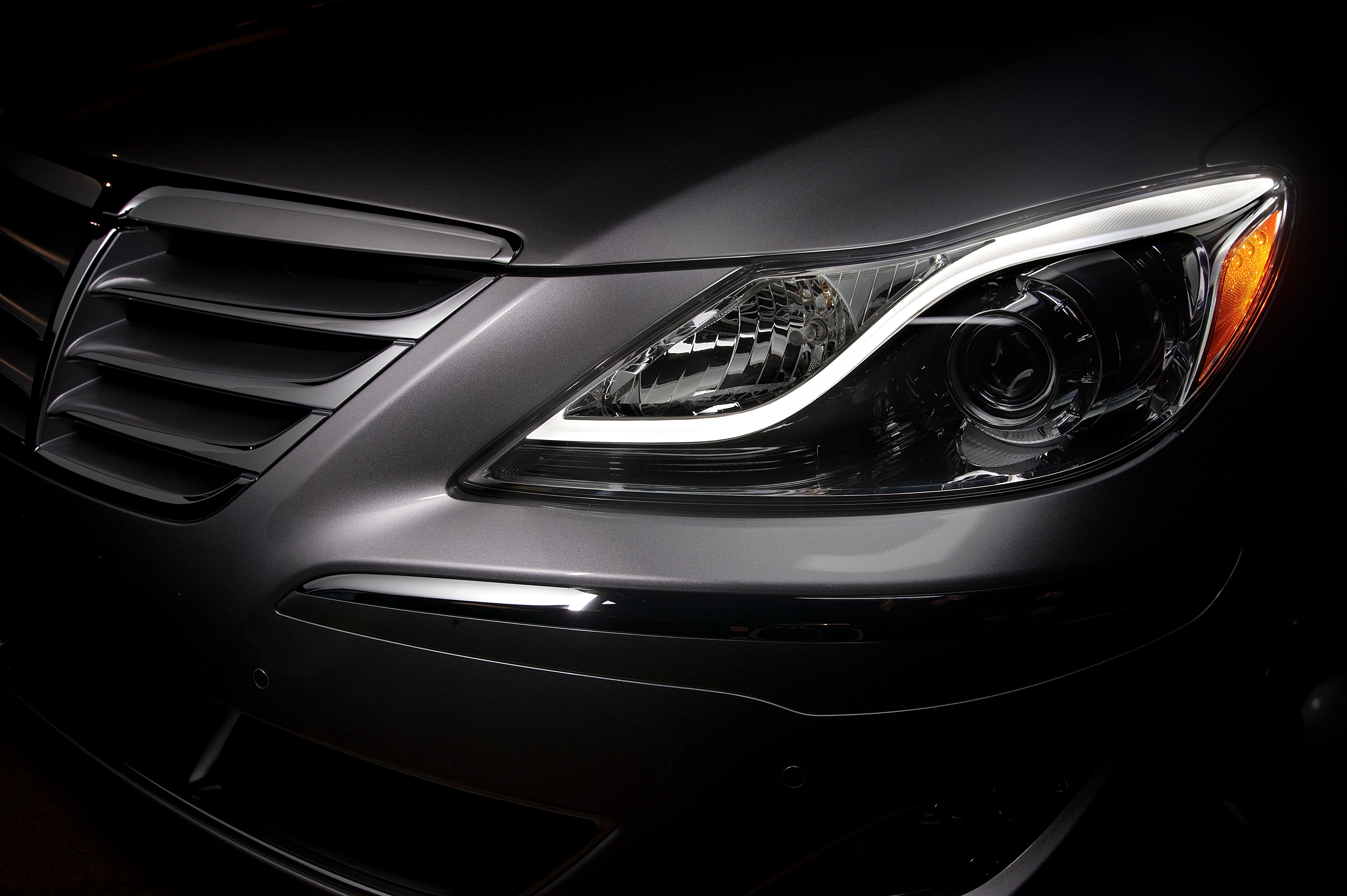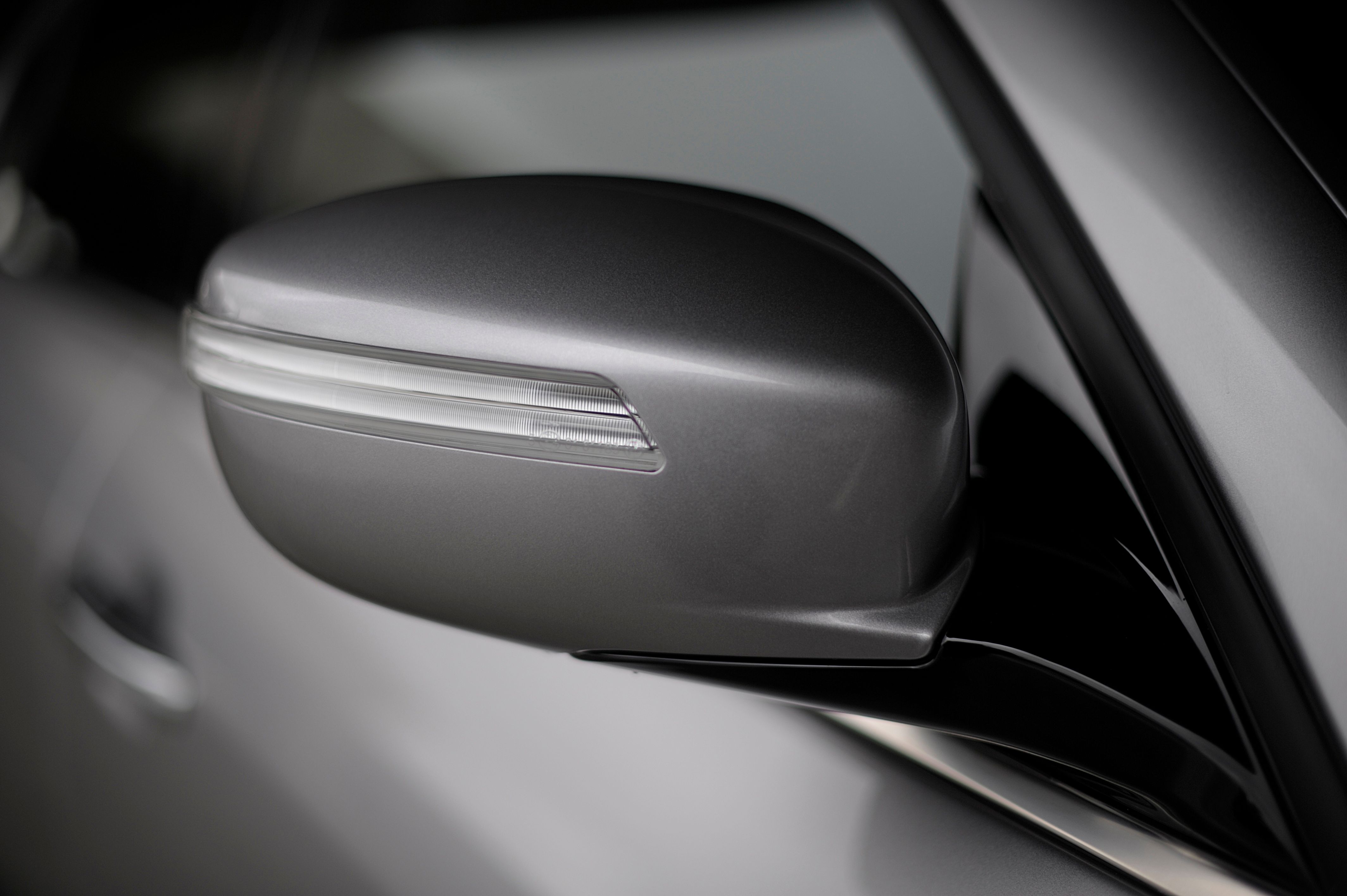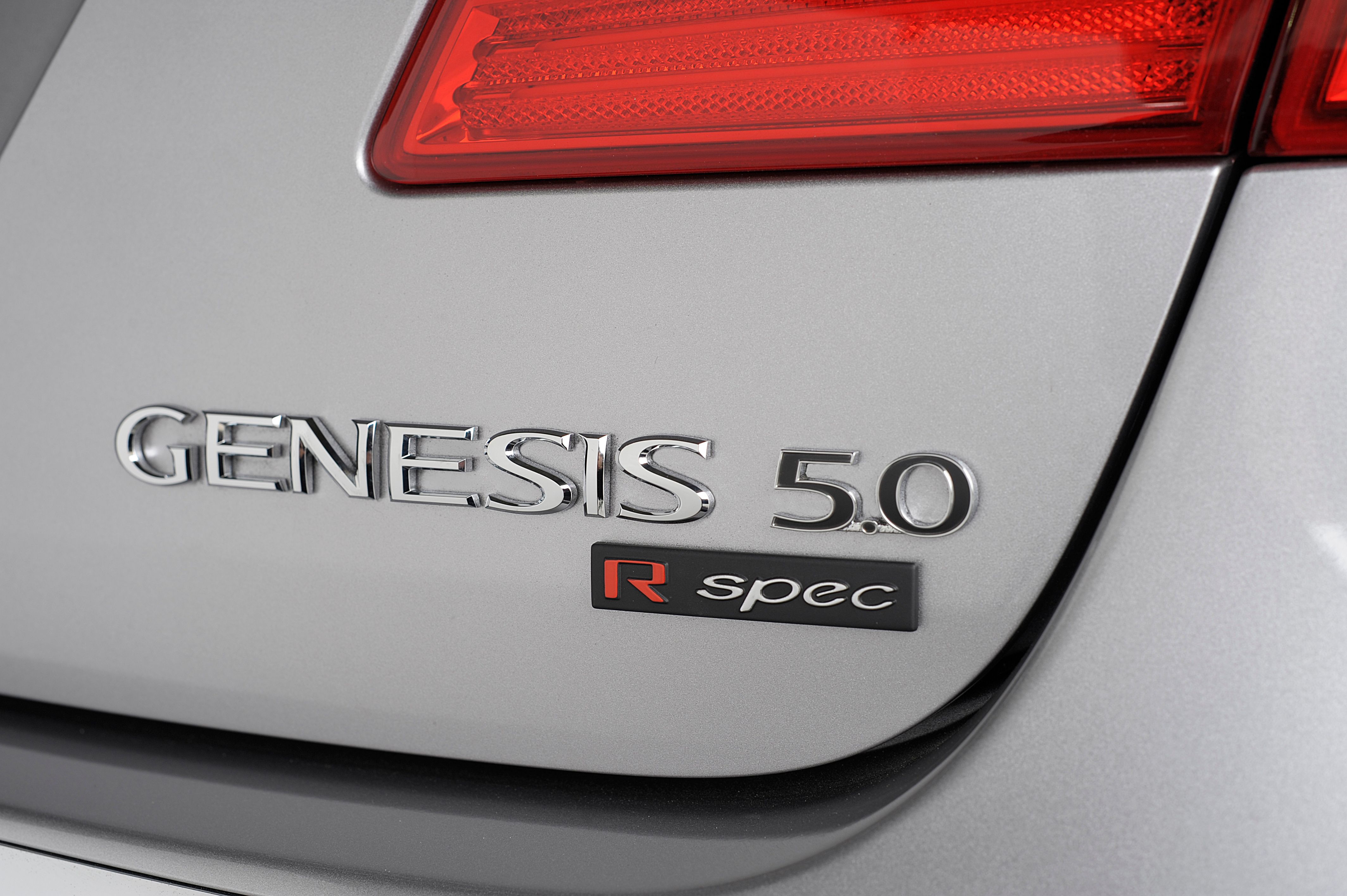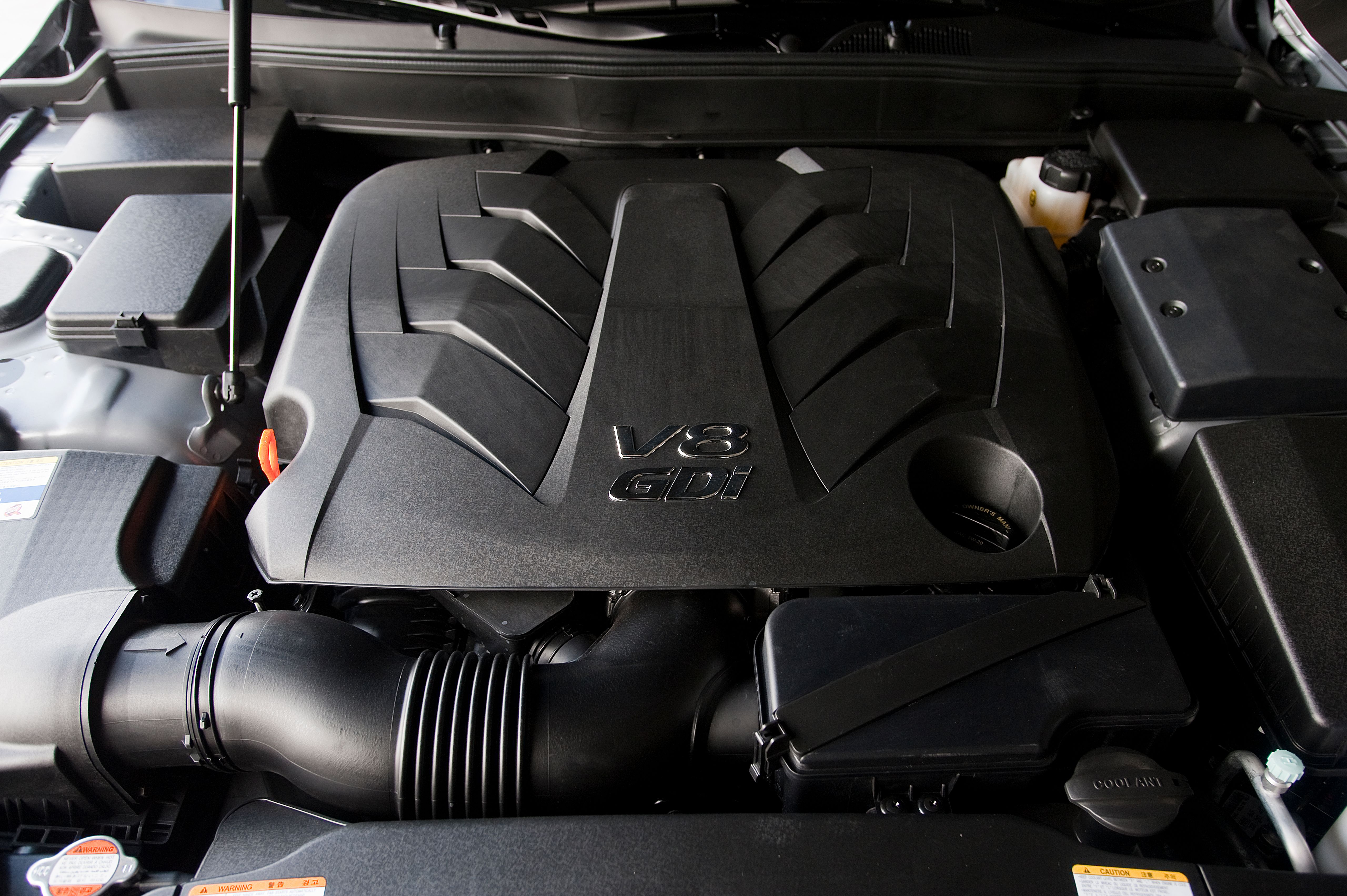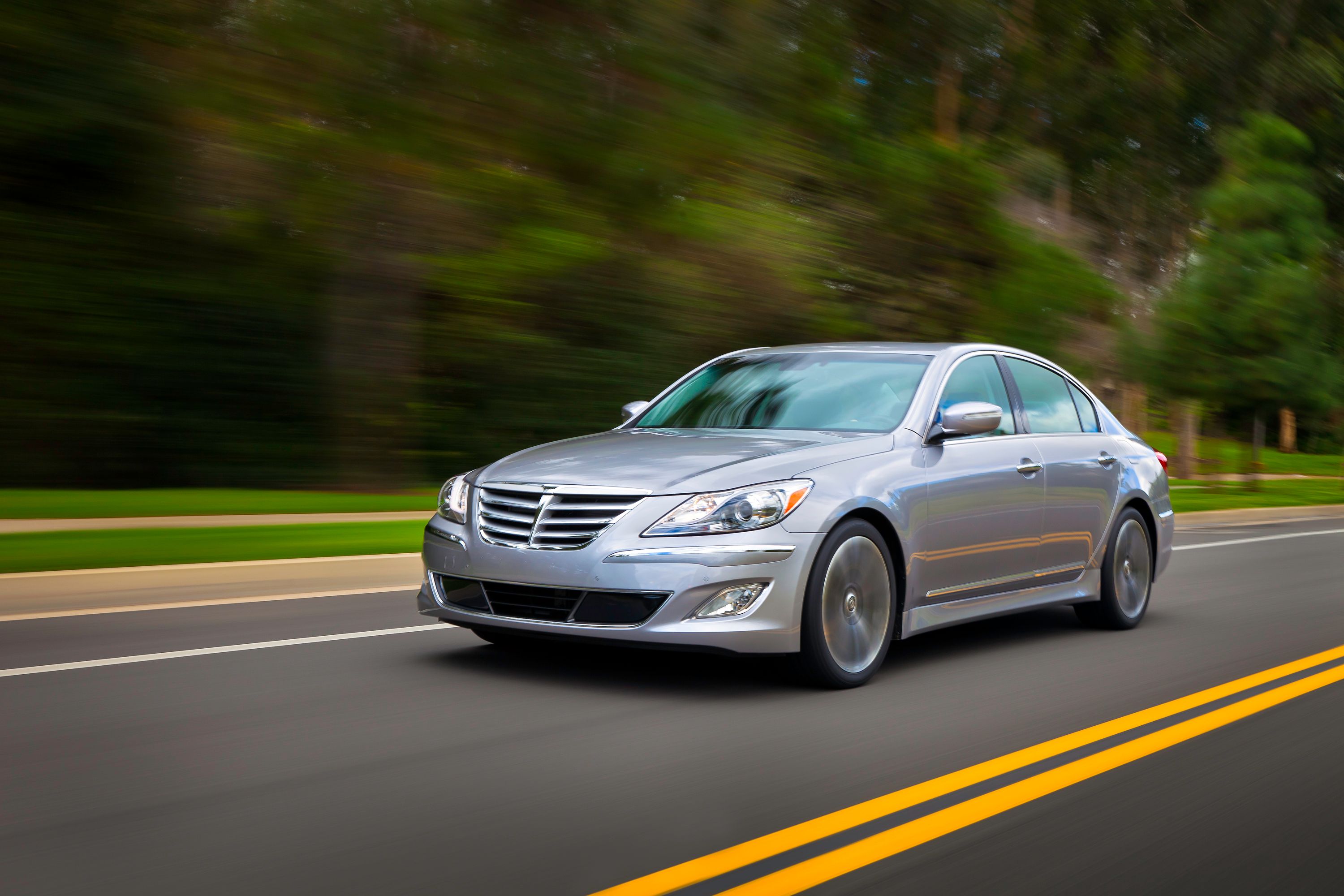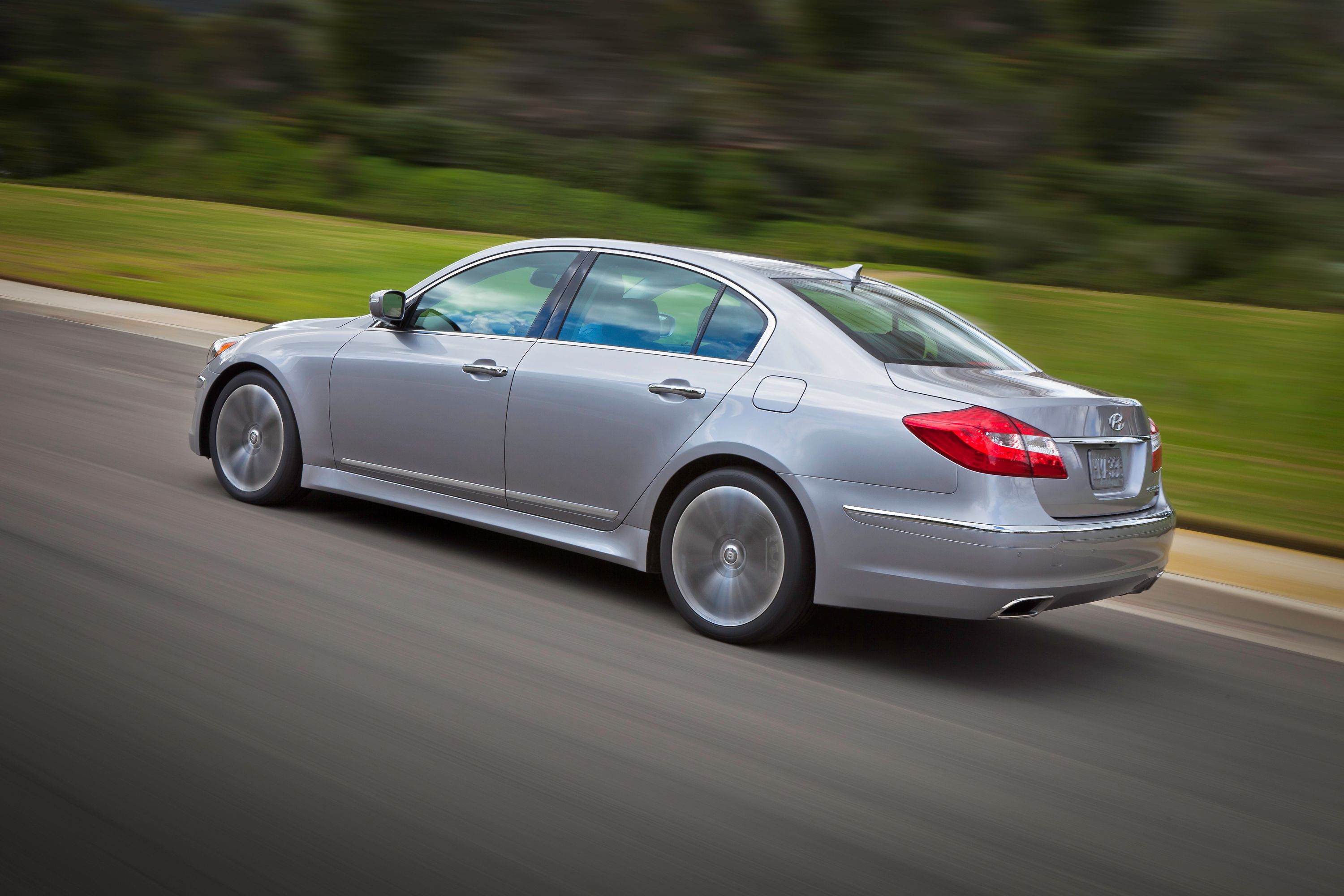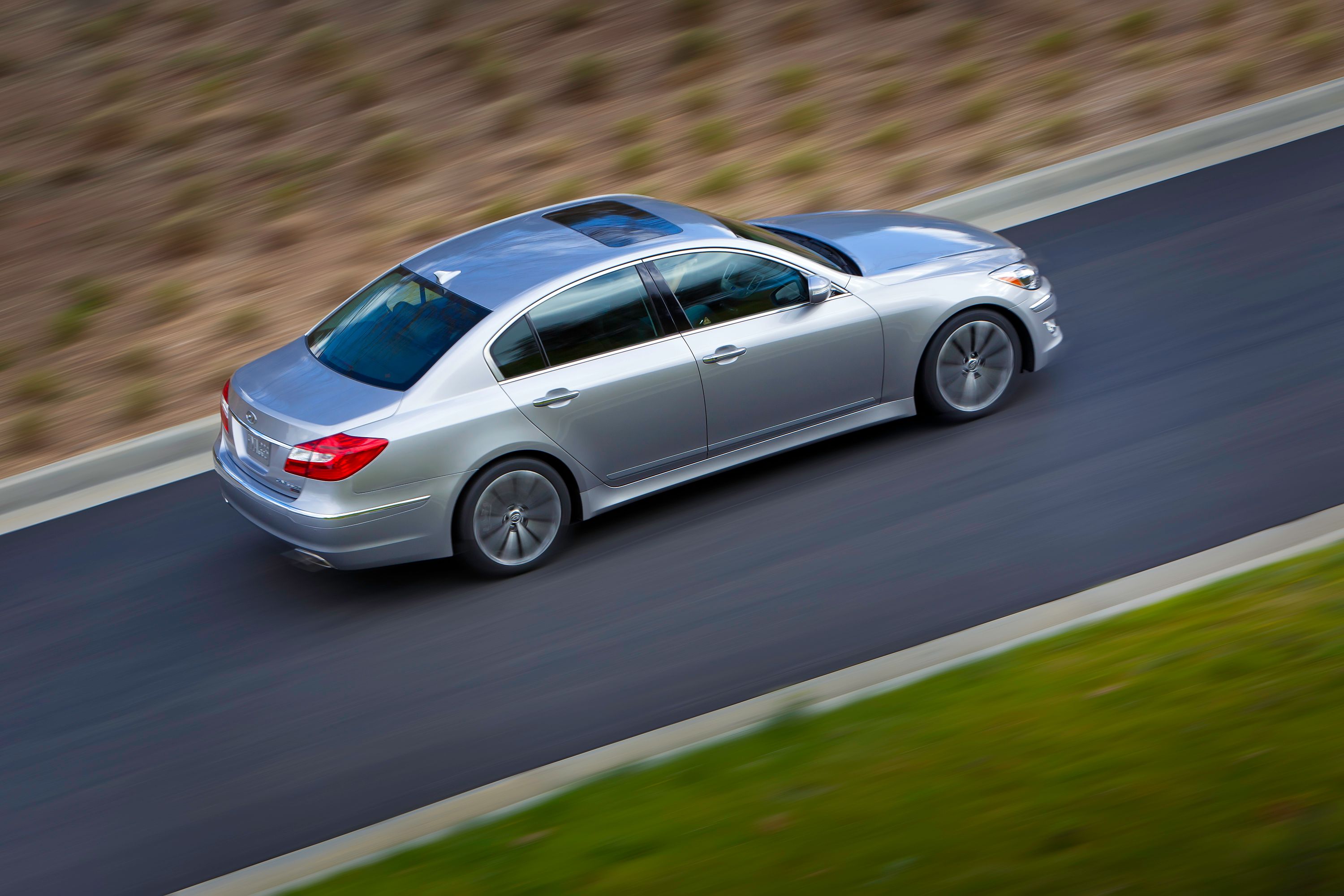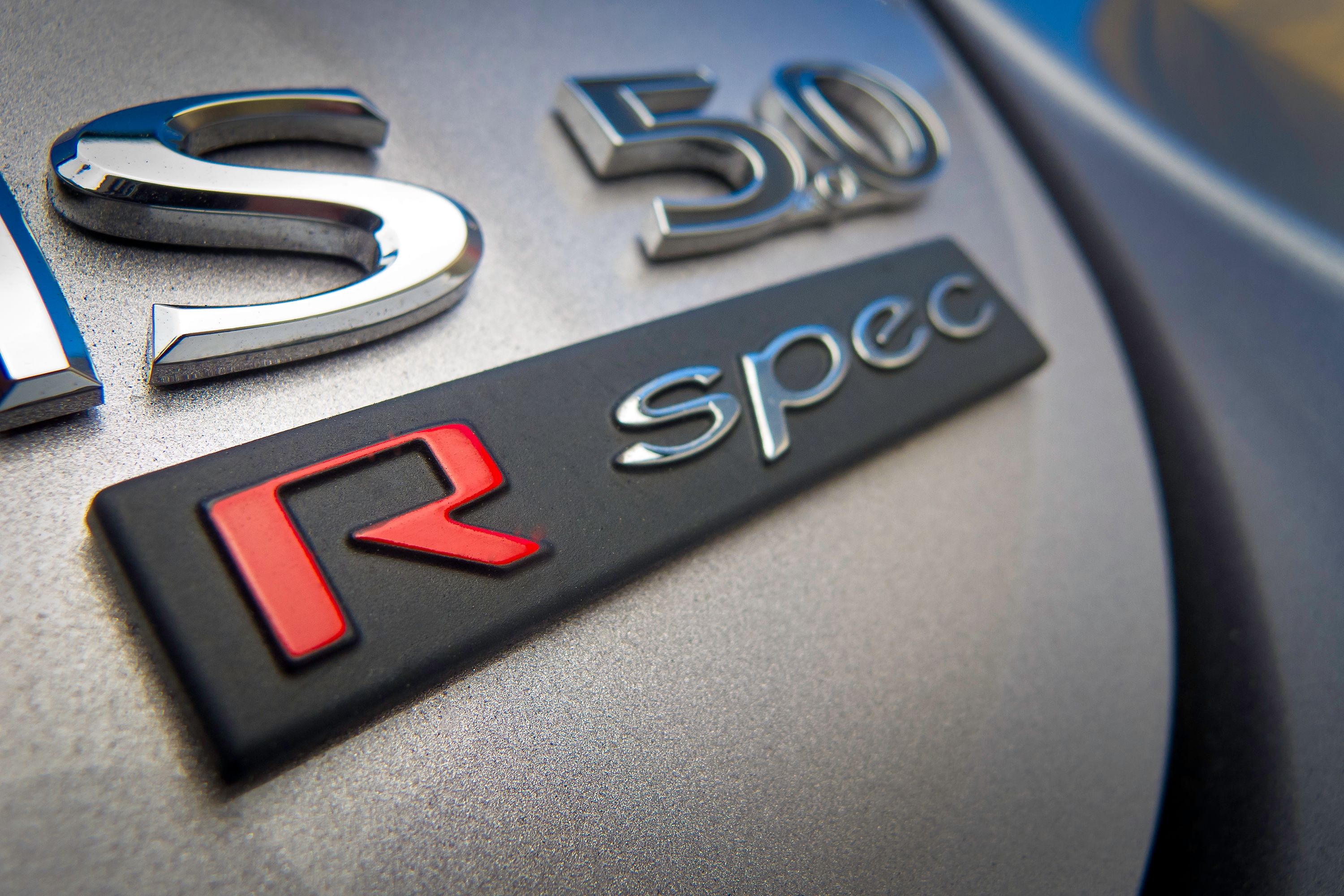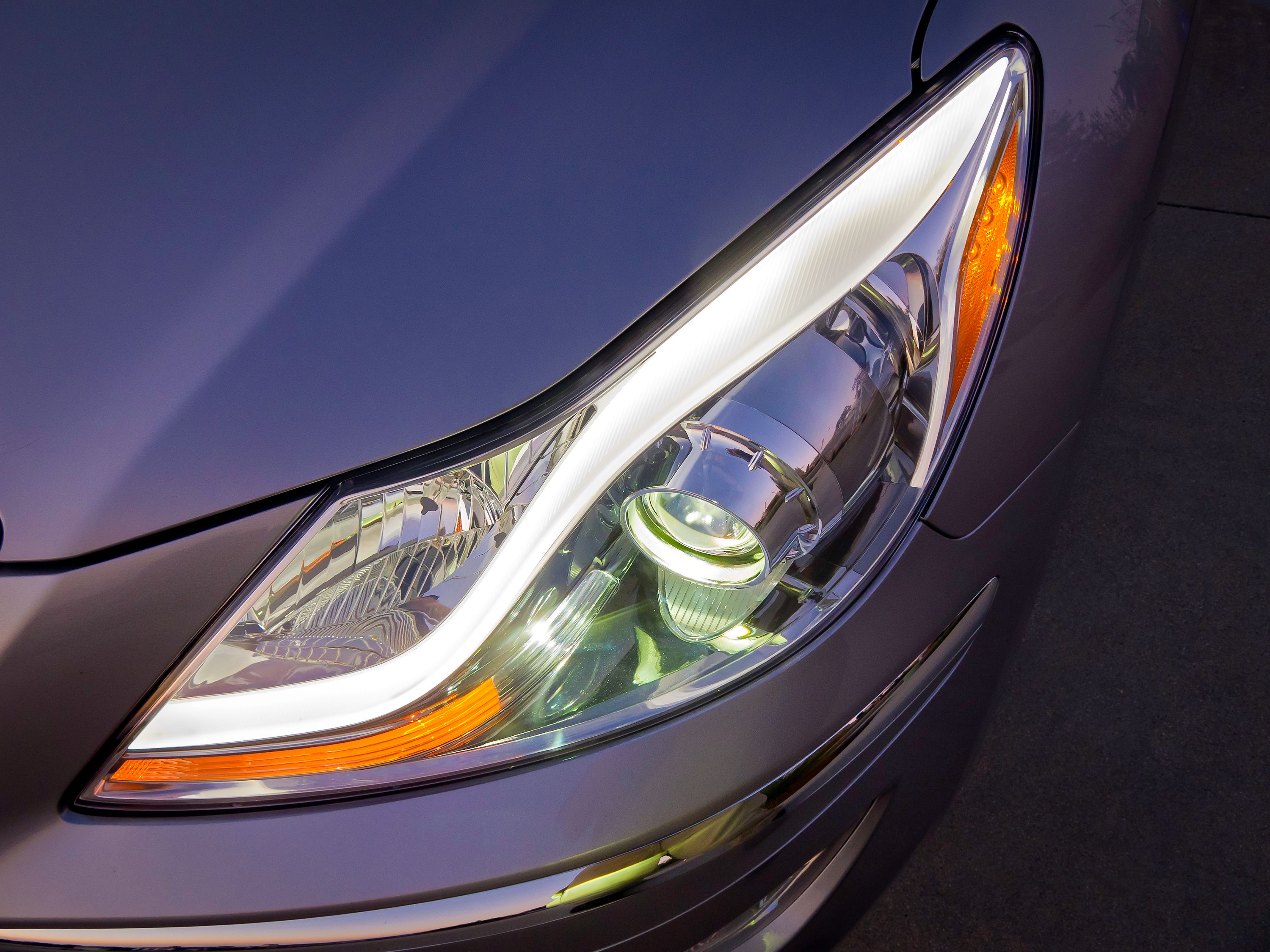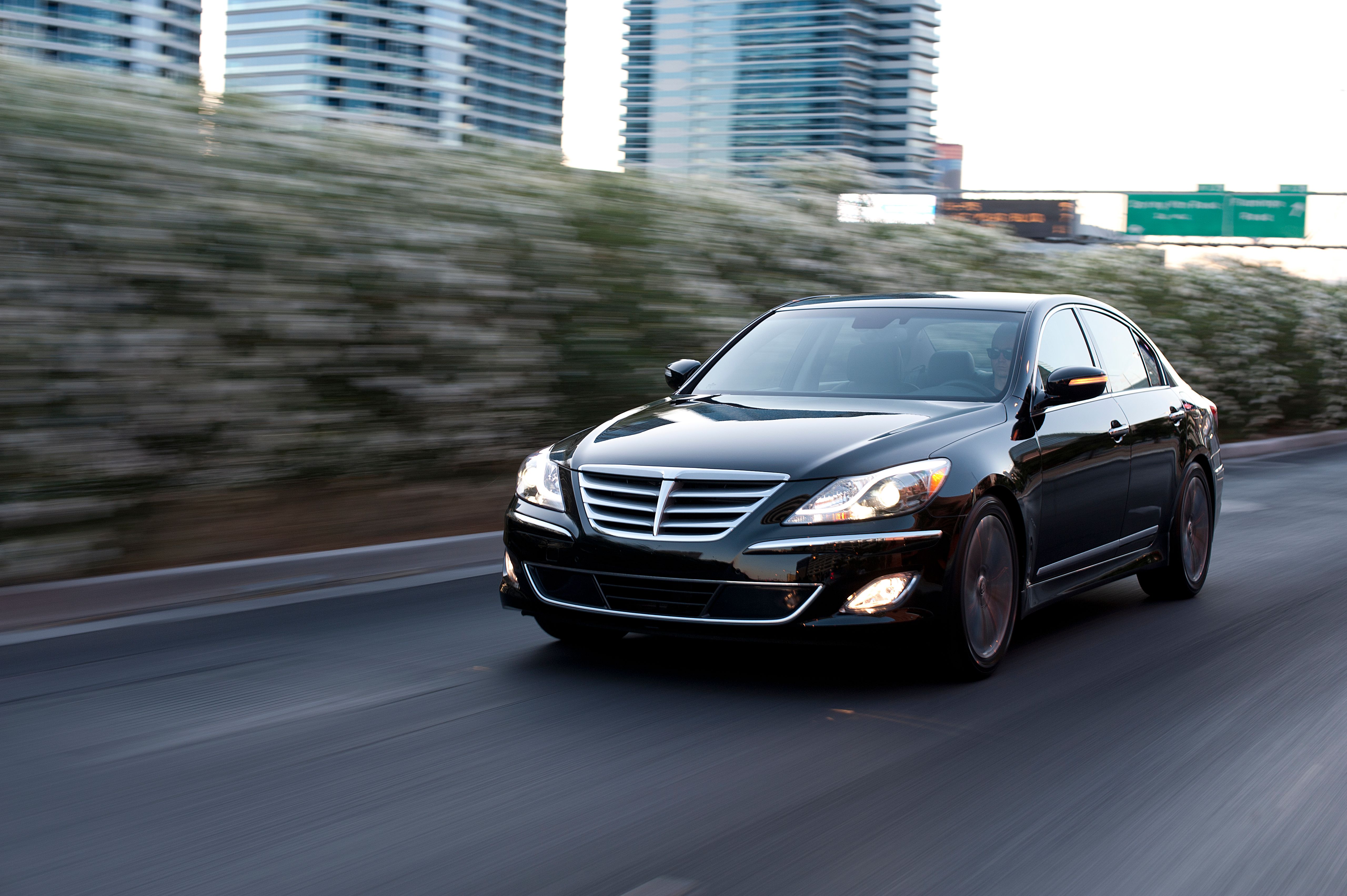As Hyundai->ke201 continues growing its lineup into one that competes with just about every automaker in the market, it is still refreshing its current vehicles. The Genesis->ke2924 is up for a complete overhaul in the 2014 model year, but this doesn't mean Hyundai will just standby and let their second-in-line sedan just roll into 2013 unchanged.
Hyundai has made a nice handful of changes to the Genesis, most of which the company is writing off as ways to make the lineup more simple. These changes include some mild changes under the hood and some tuning to the interior and technology of the popular sedan. Hyundai also added one huge addition to the inside of the Genesis Sedan that will help make every driver's life much easier.
So, are these changes enough to keep the Genesis Sedan impressing us media folk? Well, you're going to have to click past the jump to find out exactly what we think of this slightly revised version.
hyundai-genesis-sedan
- Make: Array
- Model: hyundai-genesis-sedan
2013 Hyundai Genesis Sedan
- Make: Array
- Model: 2013 Hyundai Genesis Sedan
- Engine/Motor: V6
- Horsepower: 333 @ 6300
- Torque: 291 @ 5100
- [do not use] Vehicle Model: Array
Exterior
On the outside, the Genesis Sedan is largely untouched. In fact, it wasn't touched at all. Of course, the Genesis coupe was a very stylish car in the previous year, so why change it now? The front fascia boasts several large intake openings and standard LED lights. It also features the same chrome-accented three-louver grille. You also get the same asymmetrical exhaust tips from last year too.
As we said, the exterior is 100 percent untouched from 2012, but that's not necessarily a bad thing. According to our conversation with Hyundai, there is a redesign coming in 2014, but the information can't be released just yet.
Interior
On the inside is where many of the changes are happening on the 2013 Genesis. While the interior's aesthetics remain the same, you'll notice tons of differences from a technical standpoint. On the second trim level Genesis, the 3.8 Premium, you get the same DVD-based navigation system from last year, which features a 7-inch LCD touchscreen.
When you move up to the 3.8 Tech and the 5.0 R-Spec you get to see the huge changes. First off, you are getting Hyundai's Blue Link for the first time ever along with one year of free service. This system includes: text-to-voice messaging, point of interest (POI) web search, Smartphone remote features and monthly vehicle reports. Blue Link comes in three levels: Assurance, Essentials and Guidance. You can see what the packages include below.
Blue Link Assurance package:
-Automatic Collision Notification (ACN) and Assistance
-SOS Emergency Assistance
-Enhanced Roadside Assistance
Blue Link Essentials package:
-Remote Door Lock/Unlock
-Remote Horn and Lights
-Panic Notification
-Remote Engine Start
-Alarm Notification
-Quick Tips
-Location Sharing
-Voice Text Messaging
-Automated Diagnostic Trouble Code
-Maintenance Alert
-Recall Advisor
-Web Vehicle Diagnostics
-Service Link
-Stolen Vehicle Recovery
-Stolen Vehicle Slowdown
-Vehicle Immobilization
-Valet Alert
-Geofence
-Speed Alert
-Curfew Alert
Blue Link Guidance package:
-Turn-by-Turn Navigation Service
-POI Search by advanced voice recognition system
-POI Web Search and Download
-Daily Route Guidance with Traffic Condition
-Traffic Updates
-Gas Station Locations and Gas Prices
-Eco-Coach
-Restaurant Ratings
-Weather
Also included on the 3.8 Technology and 5.0 R-Spec models is Hyundai's new Ultimate Navigation. This boasts an 8-inch screen with turn-by-turn navigation, enhanced multimedia control, and a driver's information system (DIS). This system uses a joystick and rotating dial system as its interface, so it is easier to navigate. It also boasts an enhanced voice-recognition system, so you can have more accurate control over the system via your voice and all-new “Hot Keys” help you access frequently used parts of the system at the press of a button.
Within this system is a 64 GB solid state hard drive – a hard drive that has zero moving parts – so it is more secure while driving and doesn't get damaged if you hit a bump too hard or get into an accident. You can store music, images, and videos on this system or you can link up a Bluetooth enabled smartphone and stream music from it.
The navigation system is simpler and more user-friendly than ever before. No longer do you have to say the number, street, and city at separate times, as you can say the entire address in one big sentence and the voice-recognition system will pick it up and search its database for it. Like a game of chess, the navigation system outlays your next three navigation moves to help prevent you from having to suddenly change lanes when it says “Turn left now!”
In addition, it also adds in lane guidance, which shows you what direction to go when a highway splits and, like the newest Android navigation system, this system displays an image of your final destination to help you visualize it.
That's not it either, as Hyundai added a few more cool gizmos to this system. It also gives you Zagat ratings for restaurants. The SiriusXM system is also upgraded to sports, stock, and even weather information on demand. All in all, a pretty awesome system and something that no one would have expected from Hyundai 10 years ago.
Engine and Drivetrain
Under the Genesis's hood is a mild change too. No, there are no mechanical changes to any of the engines, but rather Hyundai simplified your engine selections. Gone is the 4.6-liter V-8 engine, plus the 5.0-liter engine is no longer available in any model other than the R-Spec trim. This leaves us with three trim levels that boast the 3.8-liter V-6, which pumps out 333 horsepower and 291 pound-feet of torque, and those are the 3.8, 3.8 Premium, and 3.8 Technology.
The 429-horsepower 5.0-liter V-8 engine is now only available in the R-Spec model. That's a bit of a bummer, but this was obviously to prevent customers from getting confused by the multiple engines and it was also likely done to help increase the brand's overall fuel economy. The V-8 engine is rated at 16 mpg city and 25 mpg highway, and the 6-cylinder-equipped Genesis gets 29 mpg on the highway,
All of the Genesis Coupe's trim levels utilize an 8-speed automatic transmission. This transmission does boast SHIFTRONIC manual shifting capabilities.
We love that Hyundai is keeping the 5.0-liter, but the idea of scrapping the base 4.6- and 5.0-liter engines is a little disheartening. We guess it is necessary to cut back on the lower trim levels and keep it simpler.
Safety
The Genesis features electronic stability control, sight airbags, and even active head restraints. The 3.8 Technology and R-Spec models offer a lane departure warning system to help you stay in your lane via a warning light and a ding. All Genesis models include eight sensors on the front and rear bumpers, and a rear-mounted camera to aid in parking and backing up.
Pricing
We're not too sure on pricing, but we assume that the base level will remain at or near its 2012 pricing, which was $35,075. The top-level R-Spec may jump slightly with its new technology, coming in at around $47,500. We'll let you know once we get some pricing info.
Competition
The key competition for the Hyundai Genesis Sedan is the Infiniti M->ke269, though it also matches up well against the BMW 5-Series->ke317. Right from the start, the Genesis has a $13,125 advantage on the $48,200 Infiniti M37 and a 12,500 advantage over the M56. The M37's 3.7-liter V-6 engine pumps out 333 horsepower and 270 pound-feet of torque, which is three horsepower and 21 pound-feet less than the Hyundai's 3.8-liter V-6. The mighty M56 pounds down 420 horsepower and 417 pound feet of torque, which is nine horsepower less than the Hyundai, but has 41 pound-feet more torque.
On the outside, it depends on what you are looking for. The Hyundai gives you a more elegant and luxurious look, whereas the Infiniti squeaks some style into its class. We’ll give this one to the Hyundai, as we feel this type of vehicle should be a little more business-like than the Infiniti M's sporty look.
Conclusion
Well, we have to love the Genesis thus far, and though we are anxious for the redesign, we are happy to see this final carryover model. The nice thing is that despite Hyundai carrying the body over, they spruced up the interior of the top-end trim levels with the new Blue Link system and their Ultimate Navigation System.
In all, we think that the Genesis is a good buy, as this is not the Hyundai we all knew a decade ago that just built cheap cars. They are really aiming at classing up their vehicles and definitely hitting the mark. Sure, it's not at the level of a 5-Series, but it's damn close and well worth saving the $12,000 to miss a few pieces that you'll never even notice weren't there.
Hat's off, Hyundai.

